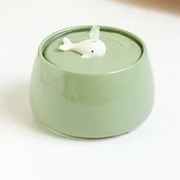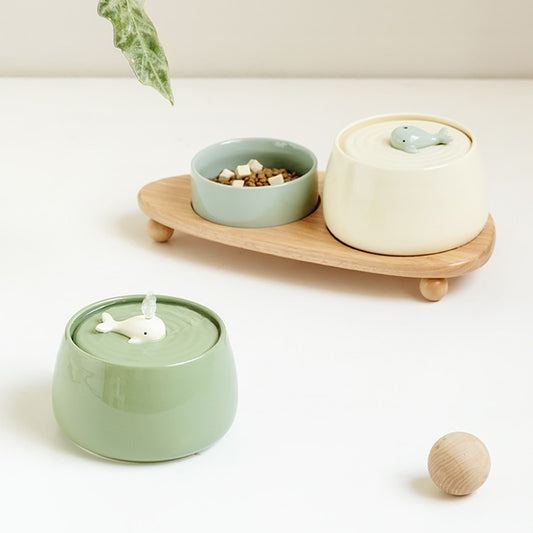How Long Can Cats Live? Understanding a Cat's Lifespan
Cat Water Fountains Australia
Share This Article
You gaze at your cat, wondering how long you'll have together. It's a question many pet owners ask. The answer isn't simple. Each cat's life is different. But you can help your cat live longer and healthier.
Average Lifespan of a Cat
The average lifespan of a domestic cat ranges from 13 to 17 years, but some lucky felines can live into their early 20s. The oldest recorded cat lived to an astonishing 38 years. Understanding the factors that influence a cat’s longevity can help you provide the best care possible.
Factors Affecting a Cat’s Lifespan
1. Indoor vs. Outdoor Cats
Indoor cats generally live longer than their outdoor counterparts. Indoor cats benefit from a controlled environment free from predators, traffic, and diseases spread by other animals.
2. Diet and Nutrition
A balanced, high-quality diet is crucial for your cat’s health. Cats are obligate carnivores, requiring a diet rich in animal-based proteins. Ensuring they have proper nutrition can prevent obesity, diabetes, and other health issues.
3. Regular Veterinary Care
Regular check-ups and vaccinations are vital for catching potential health issues early. Routine dental care is also essential to prevent dental disease, which can lead to more serious health problems.
4. Genetics
Genetics play a significant role in a cat’s lifespan. Some breeds, like Siamese and Burmese cats, are known for their longevity, often living into their late teens or early twenties.
Enhancing Your Cat’s Longevity
1. Healthy Diet
Feed your cat a diet appropriate for their age, weight, and health needs. Avoid overfeeding and ensure they have access to fresh water at all times.
2. Exercise and Mental Stimulation
Regular play and mental stimulation keep your cat physically and mentally healthy. Interactive toys, climbing trees, and puzzle feeders can help maintain their agility and prevent boredom.
3. Stress Reduction
Cats thrive in a stable, calm environment. Minimise changes and provide safe spaces where they can retreat and relax.
4. Preventive Care
Keep up with vaccinations, flea and tick prevention, and regular vet visits. Early detection of health issues can significantly extend your cat’s life.
The Role of Breed in Lifespan
Some cat breeds are predisposed to longer lives, while others may have genetic health issues that can shorten their lifespan. Here are a few examples of breeds with the longest and shortest lifespans:
Top 3 Breeds with the Longest Lifespan
1. Siamese- Lifespan: Often live into their late teens or early twenties.
- Notes: Known for their striking blue eyes and vocal nature, Siamese cats are one of the longest-living breeds.
- Lifespan: Many live well into their late teens.
- Notes: Burmese cats are robust, healthy, and known for their affectionate and sociable nature.
- Lifespan: Often live into their mid to late teens.
- Notes: Maine Coons are large, friendly cats known for their longevity and gentle personalities.
Top 3 Breeds with the Shortest Lifespan
1. Persian- Lifespan: Typically around 12 to 15 years.
- Notes: Prone to a variety of health issues, including polycystic kidney disease and respiratory problems due to their flat faces.
- Lifespan: Often around 12 to 15 years.
- Notes: Susceptible to hypertrophic cardiomyopathy, which can impact their lifespan despite their gentle and docile nature.
- Lifespan: Usually around 12 to 16 years.
- Notes: While generally healthy, Bengals can be prone to certain genetic conditions like progressive retinal atrophy (PRA) and hypertrophic cardiomyopathy (HCM).
Maximising Your Cat’s Lifespan
To ensure your cat lives a long, healthy life, focus on providing a balanced diet, regular exercise, routine veterinary care, and a stress-free environment. Remember, while genetics play a role, your care significantly impacts your cat’s longevity.
Note: This article is intended for informational purposes only and should not be considered veterinary advice. Always consult with a qualified veterinarian for any concerns regarding your cat’s health.









